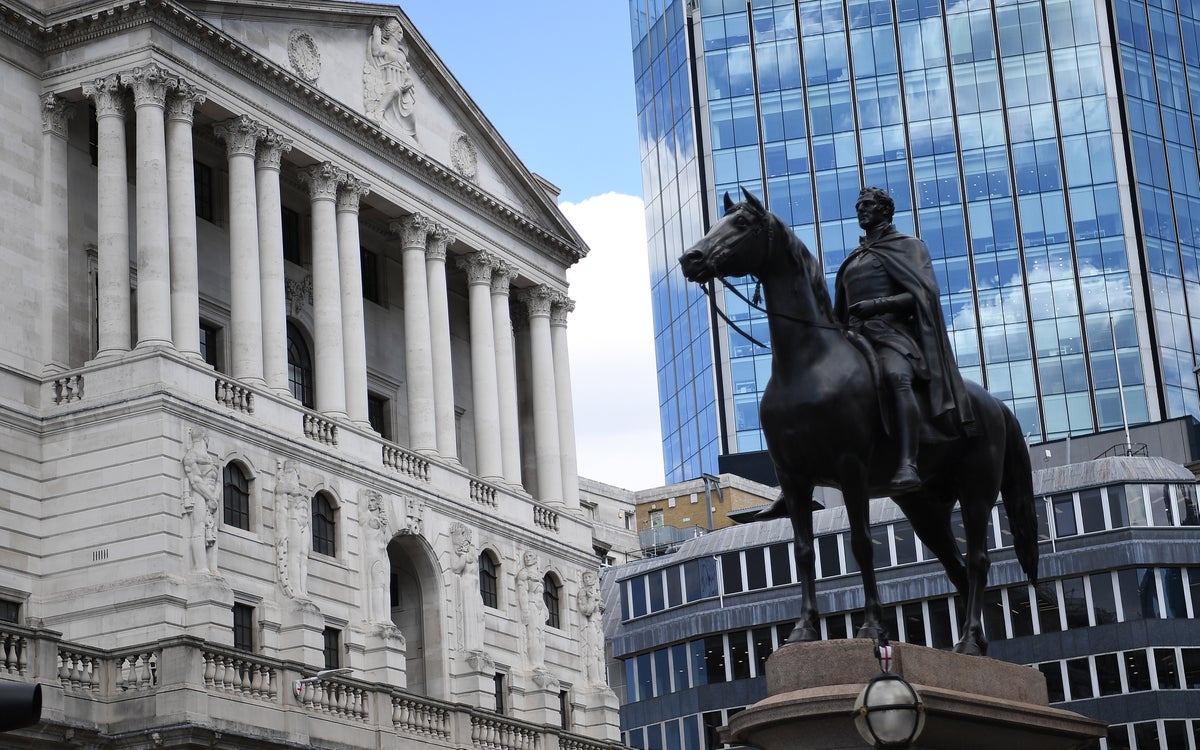
The Bank of England is expected to raise interest rates for the thirteenth consecutive time on Thursday 22nd June as it continues to try and tame sky-high inflation.
At 8.7 per cent, inflation – or rising prices – is still far off the Bank’s target of 2 per cent. However, this rate is slightly lower than what it was when interest rates reached a high of 11.1 per cent last year, by 2.4 per cent.
The rise comes as concerns have mounted over the mortgage market, with the average two-year fixed residential mortgage rate surpassing 6%, according to data from Moneyfactscompare.co.uk.
Here’s a quick guide to what interest rates are, how they affect inflation, and how they affect you.
What are interest rates?
An interest rate is a measure that tells you how high the cost of borrowing money is, or how high the rewards of saving are.
If you are borrowing money, typically from a bank, the interest rate on that money is the amount you will be charged for borrowing it.
It is a charge on top of the total amount of the loan and will be shown as a percentage of the overall.
Higher percentages mean paying more money to the lender for borrowing the money.
If you are saving money in a bank account, the interest rate on that money is the amount you will accrue on top of your savings. Banks will pay you a percentage of your total savings, typically at the end of the year.
The Bank of England is set to announce another interest rates hike— (EPA)
How do interest rates affect inflation?
Low interest rates are used to discourage people from piling up their money in savings. High interest rates encourage saving because people get a better return for the money you are putting away.
This in turn has an effect on the price of goods.
When interest rates are low, people might spend more and this might cause retailers to put up the price of goods.
When rates are high, demand might fall as people put more money into their saving pots. This, in theory, should drive down the prices of goods and services.
However, rising prices are not a direct result of interest rate changes. Other things, including the supply of money and underlying costs, affect prices and cause inflation.
Interest rates can only help manage inflation.
Chancellor of the Exchequer Jeremy Hunt is under pressure to get inflation under control— (PA Wire)
How does this affect me and my mortgage?
Changes in the Bank of England’s base rate, which is the interest rate at which high street banks borrow from Threadneedle Street, has a knock-on effect on the interest rates that the former then set their mortgage borrowers.
The changes will also affect anyone with savings and anyone who is borrowing money from banks.
It will also have a wider effect on the economy. By raising the base interest rate, the BoE is hoping to temper soaring inflation and help with the cost of living crisis.
Cost of living: How to get help
The cost of living crisis has touched every corner of the UK, pushing families to the brink with rising food and fuel prices.
- The Independent has asked experts to explain small ways you can stretch your money, including managing debt and obtaining items for free.
- If you need to access a food bank, find your local council’s website using gov.uk and then use the local authority’s site to locate your nearest centre. The Trussell Trust, which runs many food banks, has a similar tool.
- Citizens Advice provides free help to people in need. The organisation can help you find grants or benefits, or advise on rent, debt and budgeting.
- If you are experiencing feelings of distress and isolation, or are struggling to cope, The Samaritans offers support; you can speak to someone for free over the phone, in confidence, on 116 123 (UK and ROI), email jo@samaritans.org, or visit the Samaritans website to find details of your nearest branch.







